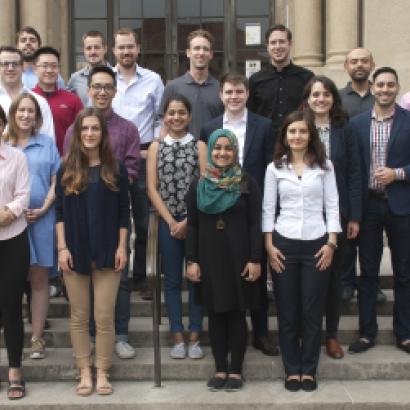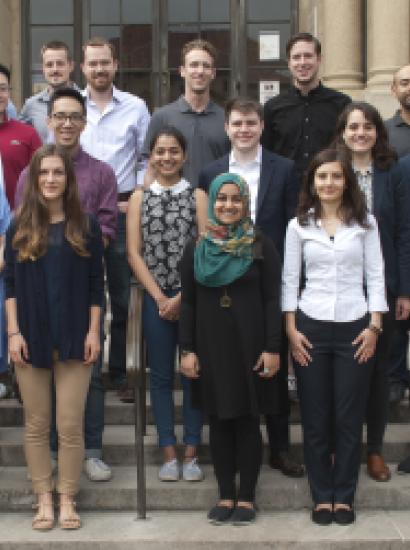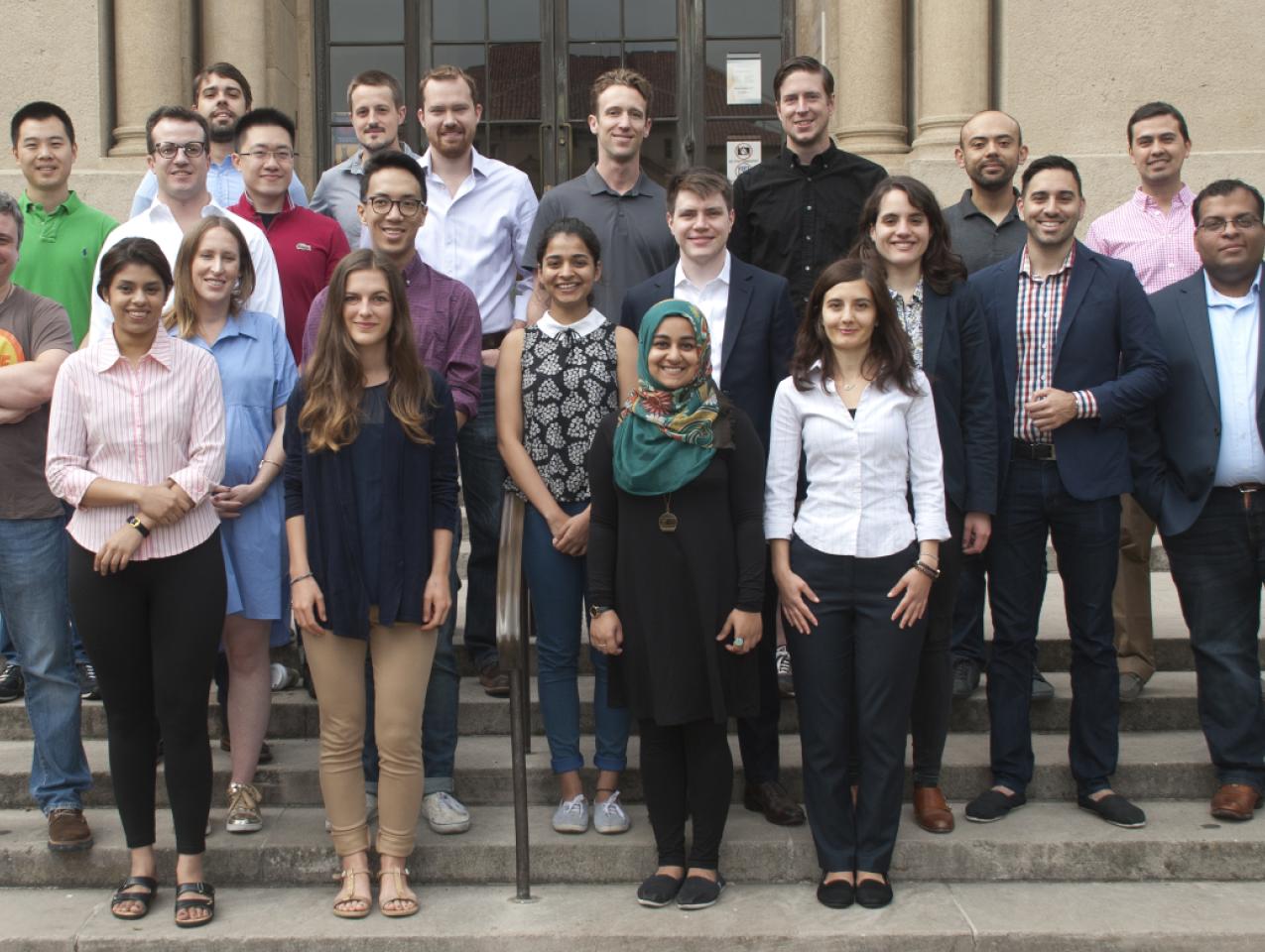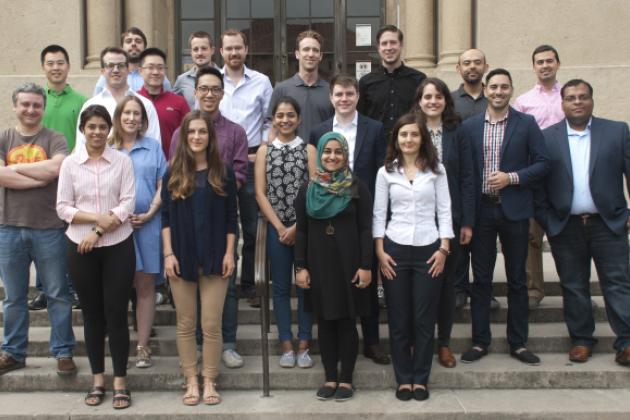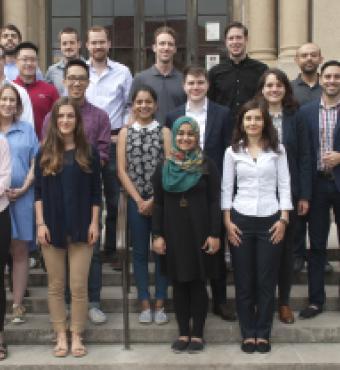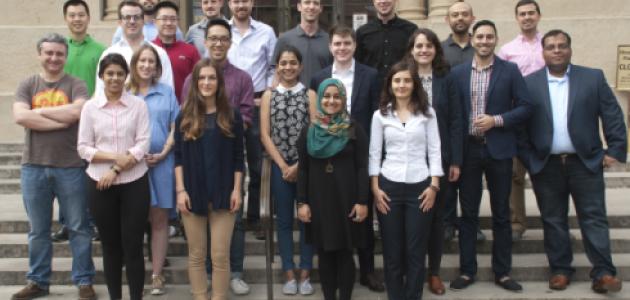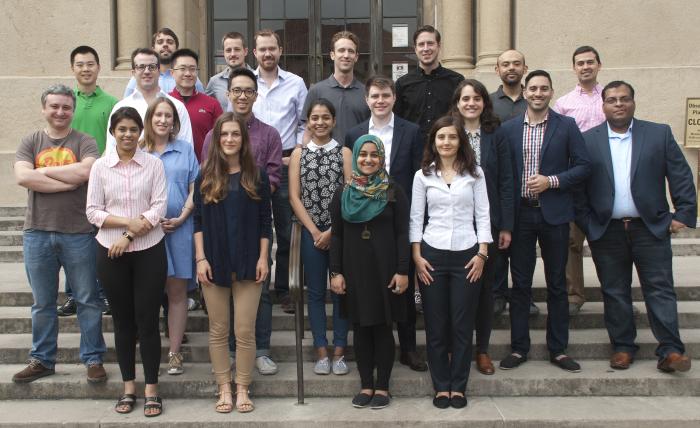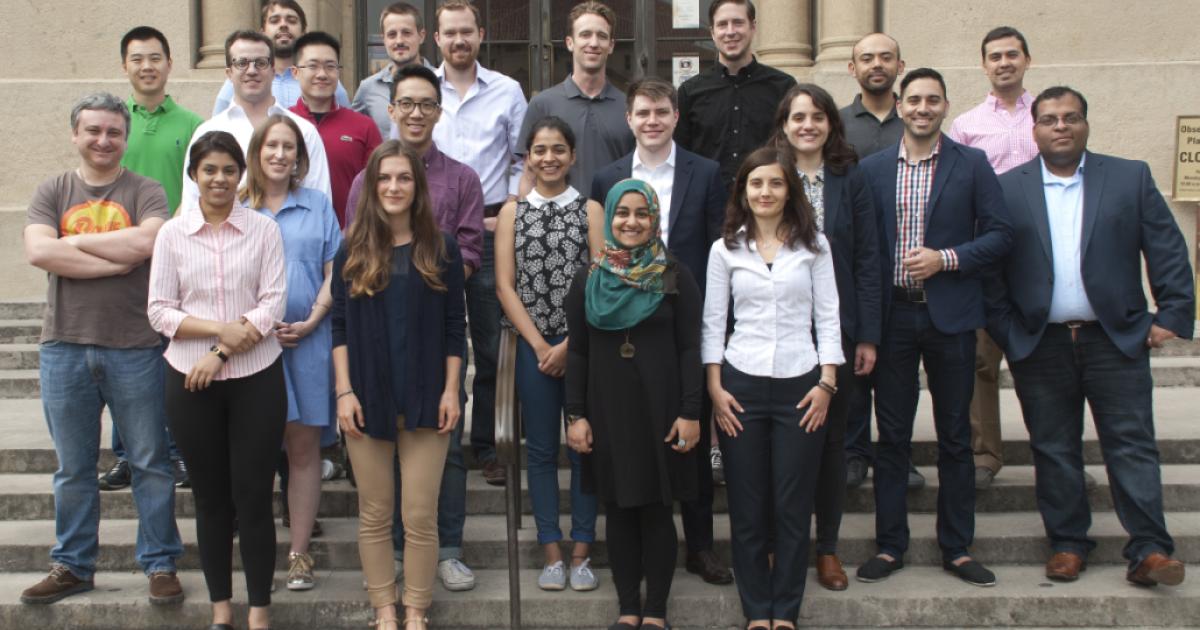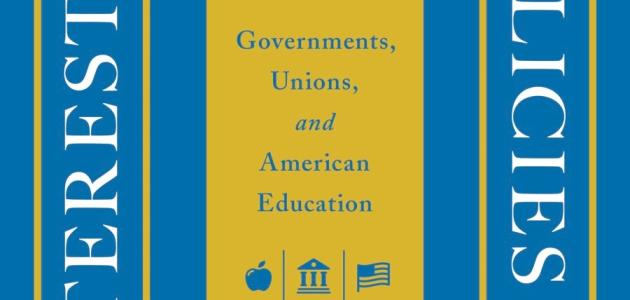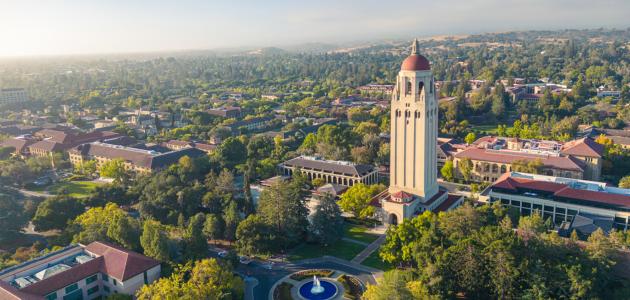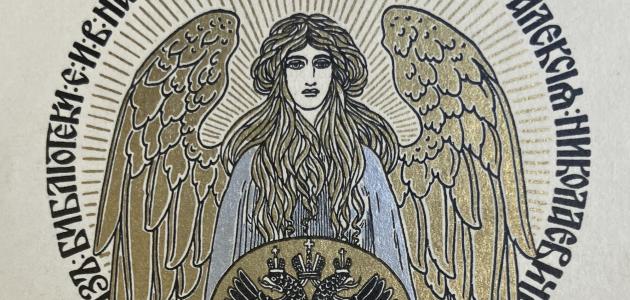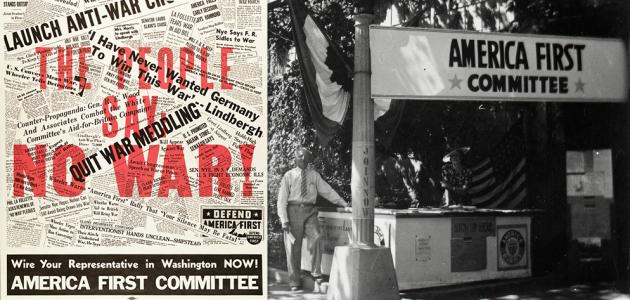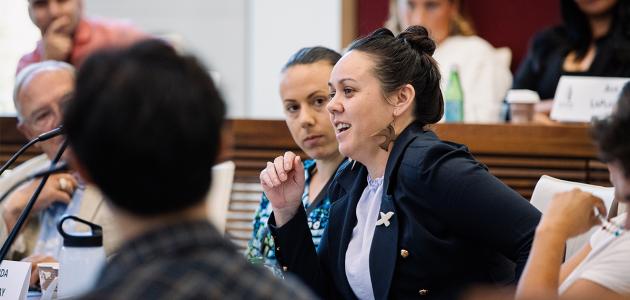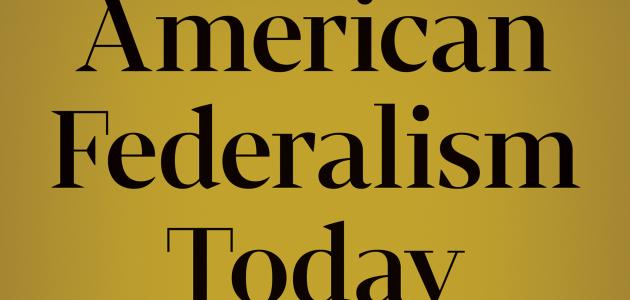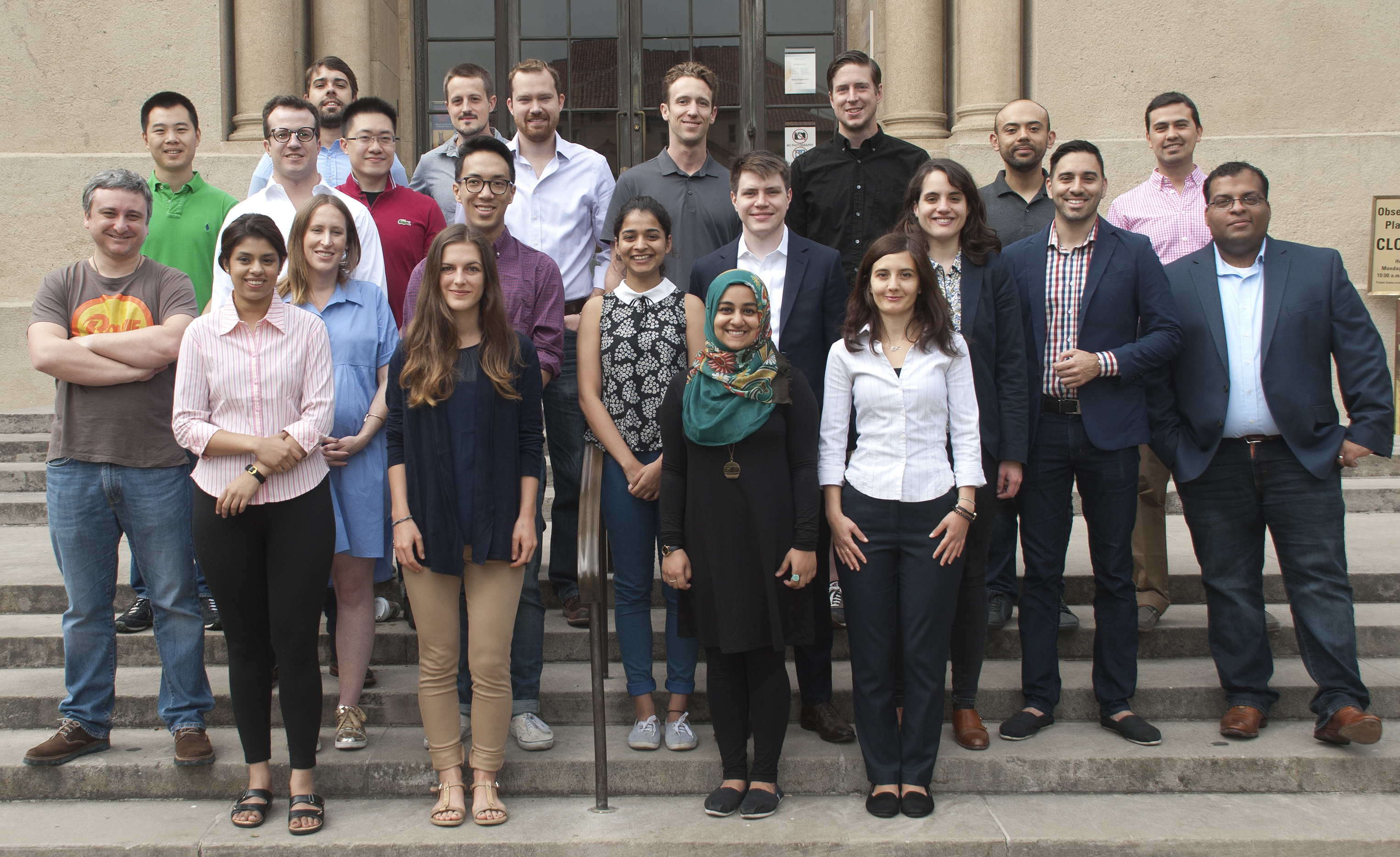
Twenty-two students from around the country and around the world completed their first week of classes in the fourth session of the Hoover IP². Summer Teaching Institute on the Economics and Politics of Regulation (STI). The STI is an intensive two-week program designed to teach budding policy makers how to apply evidence and scientific reasoning to writing legislation, creating regulations, evaluating claims, and adjudicating disputes that arise relating to property rights.
Throughout the two-week program, STI lecturers emphasize the crucial role that government and the legal system play in establishing, delimiting, and enforcing property rights as a public policy tool. According to Hoover IP² director Stephen Haber, “The theme that runs through all our IP² programs is that public policy should be based on reason and evidence.”
He continued, “We want the students to return to school and to their jobs with a better understanding of how important intellectual property rights are and how government can help protect property rights without getting in the way and, thus, to enhance the productivity that inevitably follows.”
During the first week of classes, lectures focused on economics and statistics; learning the basics of patent systems and their history; and examining the effect of intellectual property protection on innovation. The emphasis was on examining the crucial roles the legal system and the rulings and determinations by government agencies play in intellectual property disputes, mergers and antitrust, and the commercial exploitation of intellectual property.
Building on the foundation built during the first week, applications to practical business and legal issues are addressed. The second week’s lectures focus on legal issues, financial regulations, environmental problems, and commercializing innovation.
The program concludes with presentations by the students in which they apply the methods of inquiry they have been exposed to during the previous two weeks to address real-world public policy problems. Policy remedies presented by those from different sides of an issue are often tainted by ideological or normative agendas; the students are expected avoid ideology in solving the problems presented.
Hoover fellow Richard Sousa, who assists in organizing the program, said, “We’d like the students to leave with a trained eye, prepared to evaluate all sides of public policy prescriptions. We want them to be fair and critical in their evaluations and to be equipped with the proper and up-to-date scientific tools to make those evaluations.”
Former participants have commented on the “new perspectives on … important issues” and that the “program helped change the way I approach those issues.”
Students in the 2017 class are from seven foreign countries and include Capitol Hill staff, law clerks to federal judges, federal agency staff, young attorneys, and law and public policy graduate students. Students live in Stanford University housing and have the opportunity to extend their days in lively, unplanned evening conversations with their peers and new colleagues. One student went so far to say, “The experiences in this program are going to be milestones of my life.”
The Summer Teaching Institute is one component of the efforts of the Hoover Institution Working Group on Intellectual Property, Innovation, and Prosperity, which seeks to create a theoretically informed and empirically sound scholarly literature on property rights and public policy and to disseminate the findings of that literature to the larger public and the policy making-community.







